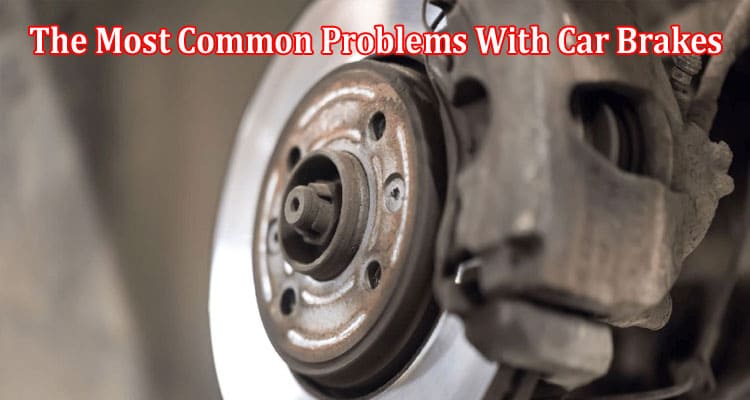The Most Common Problems With Car Brakes
The brake system is one of the key ones in a car. Its malfunction or incorrect operation makes it impossible to operate the machine. Vehicles with broken brakes are prohibited by law from driving on the roads – this is extremely dangerous. In this article, you will learn about the main problems with brakes in cars, which may help extend their life. If your car is already in poor condition and you are wondering “Who buys junk cars without a title in Bakersfield,” we recommend contacting Junkcarsus.
How Do Brakes Work?
To understand what can happen to the braking system, let’s first understand how it works. In all modern cars, this system includes brake discs or drums and pads that mechanically slow the vehicle.
The driver, when pressing the brake pedal, mechanically moves the piston in the main brake cylinder, as a result of which the brake fluid, moving along the lines, actuates the wheel brake cylinders. Those, in turn, press the pads with a special friction composition against the discs or drums – and the car begins to slow down.
The system also includes a vacuum brake booster, which minimizes pedal pressure, and a brake fluid expansion tank. Many cars are equipped with an electronic system that prevents the wheels from locking when braking.
The Most Common Problems With Car Brakes
Car brake problems are a serious issue that can affect driving safety and the health of all road users. For this reason, it is extremely important to notice problems and correct them in a timely manner.
Brake Pad Wear
Brake pads are the most unreliable element of the brake system and require regular replacement. In a disc brake system, the pads operate without problems for an average of 40 thousand km, after which they are replaced as a set with new ones. This is due to the design of the part. The pad is a metal plate with an abrasive coating. The latter wears off over time from contact with the cast iron disk, turning into dust. Often it also collapses from overheating or simply peels off from the base. A characteristic sign of a malfunction is a decrease in the level of brake fluid in the expansion tank or creaking and grinding noises when braking.
Wear of Brake Discs And Drums
Exactly the same applies to brake discs and drums. These parts last on average twice as long as the pads. So, a brake disc or drum can withstand two sets of pads, after which it must be replaced with a new one. The wear limit for these parts is indicated by the manufacturer in the documentation and should not be exceeded by the consumer. Signs of the need to replace discs include vibrations in the steering wheel when braking and discoloration of the part, indicating severe overheating. The latter leads to warping and worsening deceleration, and even to the impossibility of correct operation of the ABS.
Leaks In The Hydraulic Line
One of the most dangerous brake failures is a leaking brake line. It manifests itself quite simply: when you press the pedal, the pedal goes to the floor almost without resistance, and the car does not noticeably slow down. If this happens to your vehicle, stop immediately using the engine or mechanical parking brake and use extreme caution. Find the leak and replace the damaged tube or hose, then bleed the system. Driving a car with such a malfunction is deadly. There is a big risk that you will have to sell your junk car without a title.
Wear And Jamming of The Caliper Guides, Misalignment of The Brake Cylinder
The pistons of the working brake cylinders and the caliper guides oxidize over time and may begin to jam. This leads to the deterioration of braking and its unevenness. This is manifested by the car pulling to the side when you press the brake pedal. Often, jamming leads to overheating of the discs and drums, as well as increased wear of the brake pads. This issue has a significant security impact and needs to be resolved as soon as possible. Driving is especially dangerous in winter and rainy weather. It may cause a sudden loss of control of the vehicle.
Weak Slowdown
Poor deceleration is usually due to severe wear on the brake pads, discs, and drums, but there are other reasons. This may be a result of overheating and boiling of the brake fluid. In this case, performance is restored as soon as the mechanisms reach normal temperature. Also, deterioration in braking can occur due to depressurization of the vacuum brake booster or jamming of the master brake cylinder. These parts must be replaced with new ones.
Smoke And Burning Smell From Brakes
Smoke or a strong smell coming from the brakes is a sign that the brake system is overheating. It may indicate an imminent brake system failure. Overheating leads to the formation of scale on surfaces, which interferes with the normal operation of mechanisms. In addition, an unpleasant smell and smoke can occur due to technical fluids and lubricants entering the brake mechanisms. All this requires immediate inspection and elimination of the cause of the malfunction.
Broken Or Kinked Brake Hoses
This is a dangerous malfunction that requires immediate correction. Brake hoses are made of rubber and age over time. They lose elasticity, and cracks and creases may appear on them. This leads to leaks, depressurization, and airing of the hydraulic system. As a result, you can expect poor deceleration or complete brake failure. Carry out a periodic inspection of these parts and promptly change them if any of the symptoms described above occur.
Wrapping It Up
An effective braking system is critical to road safety, and any malfunction or delay in its operation can have serious consequences. Regular maintenance and attention to your brake system are key to staying safe on the road. If you own a car that is defective or not pleasing to you for aesthetic reasons, you can sell it with the help of Junkcarsus. The company buys junk cars without a title in Bakersfield or any other city in the USA.




